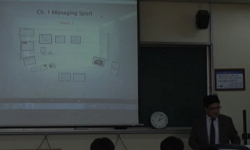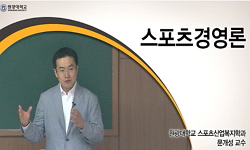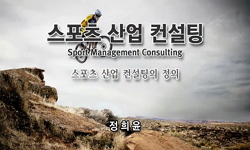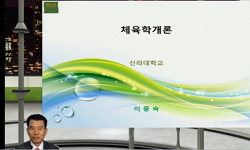Recent debates regarding the academic relationship between sport management and recreation management have concluded that sport management does not integrate well with recreation management, and vice versa. The conclusion derives from narrow concerns ...
http://chineseinput.net/에서 pinyin(병음)방식으로 중국어를 변환할 수 있습니다.
변환된 중국어를 복사하여 사용하시면 됩니다.
- 中文 을 입력하시려면 zhongwen을 입력하시고 space를누르시면됩니다.
- 北京 을 입력하시려면 beijing을 입력하시고 space를 누르시면 됩니다.
https://www.riss.kr/link?id=A106100478
-
저자
김헌일(Hun Il Kim) ; Laurence Chalip (Uriv. of Texas at Austin)
- 발행기관
- 학술지명
- 권호사항
-
발행연도
2011
-
작성언어
English
- 주제어
-
KDC
691
-
등재정보
KCI등재
-
자료형태
학술저널
- 발행기관 URL
-
수록면
101-106(6쪽)
-
KCI 피인용횟수
0
- 제공처
-
0
상세조회 -
0
다운로드
부가정보
다국어 초록 (Multilingual Abstract)
Recent debates regarding the academic relationship between sport management and recreation management have concluded that sport management does not integrate well with recreation management, and vice versa. The conclusion derives from narrow concerns with protection of academic turf, rather than the development of a vibrant community of scholarly research and discourse. Recreation management and sport management have developed an array of complementary realms of inquiry that remain inadequately informed by one another because the two have remained largely separated in the academic community. In fact, the two disciplines share a common handicap which derives from the poor status associated with the study of play. However, their shared focus on play is potentially a source of advantage as play (and playfulness) can be used as tools for policy intervention. In particular, there are opportunities for enhanced policy impact in health, economic development, social development, and environmental stewardship. There are consequent opportunities for research funding. However, neither sport nor recreation have attained the degree of impact or funding their potential warrants, particularly because the two have remained separated from one another. Indeed, the separation of sport from recreation has led to strategic failures of policy, for example in the creation of sport tourism policies. In particular, the capacity to cross-leverage sport and recreation needs to be better understood, as there are clear psychographic connections that are inadequately understood and therefore inadequately applied. For example, we have so far failed to understand how sport participation and sport spectating might be leveraged to enhance the development of markets for both. In order to overcome the challenges of working together, we will need to develop a vision for shared research agendas and curricular complementarities. The direction and means for so doing are described.
참고문헌 (Reference)
1 Weed, M, "Why the two won’t tango! Explaining the lack of integrated policies for sport and tourism in the UK" 17 : 258-283, 2003
2 Chalip, L, "Towards social leverage of sport events" 11 : 109-127, 2006
3 Gusfield, J, "The culture of public problems: Drinking-driving and the symbolic order" Chicago: University of Chicago Press 1981
4 Chalip, L., "Sport event tourism and the destination brand: Towards a general theory" 8 : 218-237, 2005
5 Dustin, D., "Consider the Kirtland’s Warbler" 23 : 1-8, 2008
6 Blount, B, "Anthropological linguistics, Culture and language use" Amsterdam: John Benjamins Publishing 29-40, 2009
1 Weed, M, "Why the two won’t tango! Explaining the lack of integrated policies for sport and tourism in the UK" 17 : 258-283, 2003
2 Chalip, L, "Towards social leverage of sport events" 11 : 109-127, 2006
3 Gusfield, J, "The culture of public problems: Drinking-driving and the symbolic order" Chicago: University of Chicago Press 1981
4 Chalip, L., "Sport event tourism and the destination brand: Towards a general theory" 8 : 218-237, 2005
5 Dustin, D., "Consider the Kirtland’s Warbler" 23 : 1-8, 2008
6 Blount, B, "Anthropological linguistics, Culture and language use" Amsterdam: John Benjamins Publishing 29-40, 2009
동일학술지(권/호) 다른 논문
-
- 한국여가레크리에이션학회
- 이혁기(Hyuck Ki Lee)
- 2011
- KCI등재
-
대학생의 사회적지지, 스포츠참여 및 학교생활만족도의 관계
- 한국여가레크리에이션학회
- 박재암(Jae Ahm Park)
- 2011
- KCI등재
-
- 한국여가레크리에이션학회
- 주석범(Suk Bum Joo)
- 2011
- KCI등재
-
성인여성의 라인댄스 참여동기가 여가만족 및 운동정서에 미치는 영향
- 한국여가레크리에이션학회
- 김보람(Bo Ram Kim)
- 2011
- KCI등재
분석정보
인용정보 인용지수 설명보기
학술지 이력
| 연월일 | 이력구분 | 이력상세 | 등재구분 |
|---|---|---|---|
| 2027 | 평가예정 | 재인증평가 신청대상 (재인증) | |
| 2021-02-04 | 학술지명변경 | 외국어명 : korean Journal of Lesure, Recreation & Park -> Korean Journal of Leisure, Recreation & Park |  |
| 2021-01-01 | 평가 | 등재학술지 유지 (재인증) |  |
| 2018-01-01 | 평가 | 등재학술지 유지 (등재유지) |  |
| 2015-12-04 | 학술지명변경 | 외국어명 : korean Journal of lesure & recreation -> korean Journal of Lesure, Recreation & Park |  |
| 2015-12-03 | 학회명변경 | 영문명 : Korean Society Of Leisure & Recreation -> Korean Society of Leisure, Recreation & Park |  |
| 2015-01-01 | 평가 | 등재학술지 유지 (등재유지) |  |
| 2011-07-18 | 학술지명변경 | 외국어명 : korean society of lesure & recreation -> korean Journal of lesure & recreation |  |
| 2011-01-01 | 평가 | 등재학술지 유지 (등재유지) |  |
| 2008-01-01 | 평가 | 등재학술지 선정 (등재후보2차) |  |
| 2007-01-01 | 평가 | 등재후보 1차 PASS (등재후보1차) |  |
| 2006-01-01 | 평가 | 등재후보 1차 FAIL (등재후보1차) |  |
| 2004-06-01 | 평가 | 등재후보학술지 선정 (신규평가) |  |
학술지 인용정보
| 기준연도 | WOS-KCI 통합IF(2년) | KCIF(2년) | KCIF(3년) |
|---|---|---|---|
| 2016 | 1.63 | 1.63 | 1.72 |
| KCIF(4년) | KCIF(5년) | 중심성지수(3년) | 즉시성지수 |
| 1.79 | 1.91 | 1.629 | 0.39 |




 DBpia
DBpia






